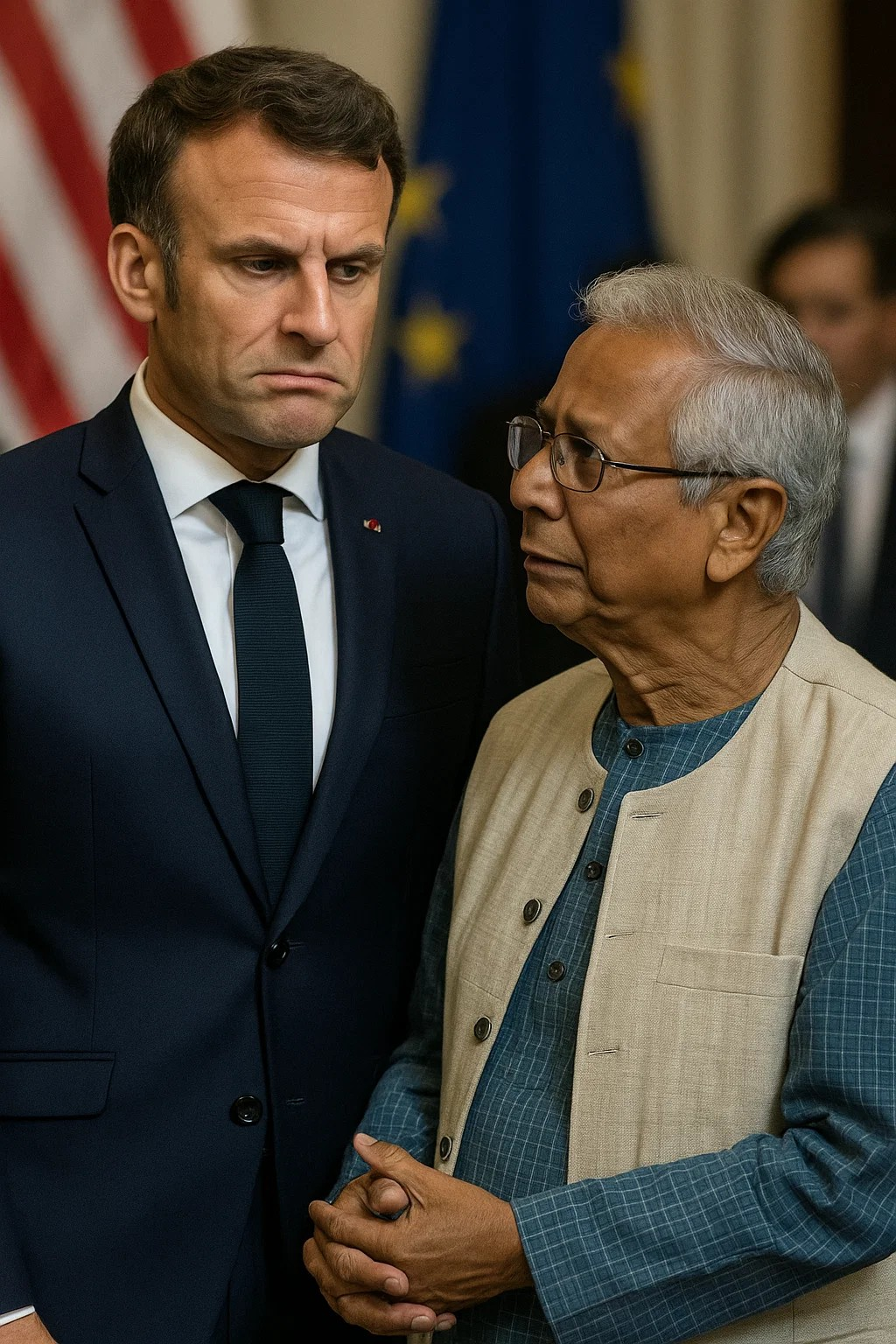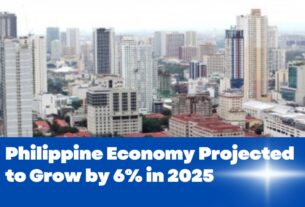Paris/Dhaka – In a diplomatic move sending quiet shockwaves through global circles, French President Emmanuel Macron has declined a bilateral meeting request from Bangladesh’s interim adviser Md Yunus, prompting the abrupt cancellation of Yunus’ upcoming visit to France. The snub, while low-key in official terms, carries potent symbolism at a time when Bangladesh’s political posture is under increasing international scrutiny.
Yunus, a senior adviser in Bangladesh’s interim government and a key figure in the country’s diplomatic outreach efforts, was expected to attend a high-profile international summit in Paris next month. His agenda included sideline meetings aimed at strengthening bilateral relations, with a proposed one-on-one with Macron topping the list.
But according to diplomatic sources in Paris and Dhaka, the Élysée Palace refused to schedule a bilateral format meeting between Macron and Yunus, effectively derailing the intended purpose of his trip. As a result, Yunus’ team canceled the visit entirely, a move being interpreted as a loss of face for Dhaka’s interim leadership on the world stage.
A Symbolic Setback
The refusal, while not officially framed as a rebuke, signals growing caution among Western powers when engaging with Bangladesh’s transactional leadership, especially as the country approaches a critical juncture ahead of its next national election.
Analysts say the move could reflect broader unease within the EU regarding governance issues in Bangladesh, including concerns over political suppression, labor rights, and transparency. Macron, who has often positioned himself as a champion of democratic values and international rule of law, may be signaling a subtle yet deliberate distancing.
“This isn’t just a scheduling conflict,” said Jean-Marc Lemoine, a South Asia policy expert at Sciences Po. “Refusing a meeting at this level, especially in a summit setting, is a diplomatic message and it’s being read that way in capitals far beyond Dhaka.”
Domestic Reverberations in Bangladesh
Back home, the cancellation may complicate Bangladesh’s efforts to project stability and legitimacy through international engagement. Yunus, who has played a pivotal role in managing sensitive diplomatic relationships during the political transition, was expected to use the Paris summit to reaffirm Dhaka’s commitment to democratic reforms and attract economic partnerships.
“Yunus’ absence will be noted not only by French officials but by other summit participants who track regional developments,” said Dr. Anika Rahman, a Dhaka-based foreign policy commentator. “The optics matter. And the optics here are less than ideal for Bangladesh.”
Macron’s Calculated Diplomacy
President Macron has increasingly used soft power gestures or their absence to navigate delicate global issues. His government has taken firm stances on authoritarian drift in several countries, including criticism of democratic backsliding in parts of Africa and Southeast Asia. His recent maneuver with Yunus may well fall within that pattern of principled pragmatism.
The French government has not publicly commented on the decision, and Bangladeshi officials have attempted to downplay the cancellation, calling it a matter of “scheduling logistics.” However, insiders suggest the French refusal was communicated clearly and early, giving little room for alternate arrangements.
Global Implications
Observers note that the snub could embolden international critics of Bangladesh’s interim administration and raise questions about the credibility of its upcoming political roadmap. It may also affect future high-level meetings with EU leaders, some of whom are watching Bangladesh’s democratic trajectory with increasing wariness.
“This could trigger a ripple effect,” said Frederic Duval, a former EU envoy to South Asia. “Other governments might take France’s cue and start pulling back from high-visibility engagements at least until Bangladesh demonstrates a more robust commitment to democratic norms.”
The Road Ahead
For Yunus and the interim leadership, the challenge now is to recalibrate international outreach efforts while managing the domestic narrative. With elections looming and international perceptions at stake, maintaining diplomatic momentum may require more than just planned appearances; it may demand meaningful reform.
As for Macron, the message is clear: in an era where symbolism often outpaces statements, sometimes not meeting someone says more than a thousand words.




